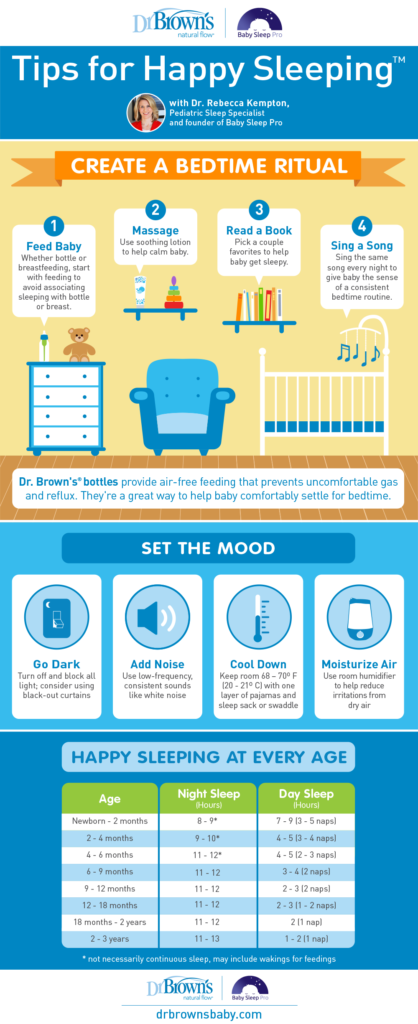As an Amazon Associate, I earn from qualifying purchases
To help your baby sleep better at night, establish a consistent bedtime routine and create a calming sleep environment. Additionally, ensure your baby is well-fed and comfortable before bedtime to promote better sleep.
By following these tips, you can improve your baby’s sleep quality and help them develop healthy sleep habits for the long term. One of the most challenging aspects of parenting is ensuring that your baby gets enough sleep.
Babies and their families need sleep to grow and develop. However, many parents struggle with getting their babies to sleep through the night. If you’re looking for ways to help your baby sleep better at night, there are several strategies you can try. Factors like activity level, grooming needs, and temperament should all be considered. We will explore effective methods to help your baby sleep better at night, allowing you and your little one to enjoy a restful night’s sleep.
Create A Soothing Sleep Environment
Create a soothing sleep environment for your baby to help them sleep better at night. By setting up a comfortable crib, adjusting room temperature, and reducing noise and light, you can create the perfect space for your little one to drift off peacefully.
Set Up A Comfortable Crib
A comfortable crib is essential for your baby’s sleep. Ensure the mattress is firm and fits snugly in the crib. Use soft, breathable bedding and avoid loose blankets or toys that could pose a suffocation risk.
Adjust Room Temperature
Maintain a comfortable room temperature between 68-72°F to help your baby sleep better. Use a room thermometer to monitor the temperature and adjust as needed. Dress your baby in light layers for optimal comfort.
Reduce Noise And Light
Minimize disruptive noises using white noise machines or soft music to create a calming atmosphere. Install blackout curtains to block out light and signal to your baby that it’s time to sleep.

Establish A Consistent Bedtime Routine
Establishing a consistent bedtime routine is crucial for helping your baby to sleep better at night. Babies thrive on predictability, and having a regular bedtime routine can signal to your little one that it’s time to wind down and prepare for sleep.
Follow A Predictable Schedule
A predictable schedule can help regulate your baby’s internal clock, allowing them to fall and stay asleep more easily. Establish a consistent bedtime and wake-up time, even on weekends, to reinforce their natural sleep-wake cycle.
Include Relaxing Activities
Incorporating relaxing activities into your baby’s bedtime routine can help signal that it’s time to unwind. Consider activities such as a warm bath, gentle baby massage, or quiet storytime to help them relax and prepare for sleep.
Avoid Stimulation Before Bedtime
Avoiding stimulation before bedtime is essential for helping your baby wind down. Prevent overstimulation in the hour leading up to bedtime by limiting screen time, loud noises, and active play.
Introduce A Bedtime Snack
Introducing a bedtime snack can be an effective way to help your baby sleep better at night. Providing your baby with a small, healthy snack before bedtime can help maintain stable blood sugar levels and prevent hunger from disturbing his or her sleep. However, it’s important to choose the right type of snack and avoid foods that could disrupt their sleep patterns.
Offer A Healthy Snack Before Bedtime
When introducing a bedtime snack, opt for options low in sugar and high in complex carbohydrates. A small serving of whole grain crackers, fruit, or a slice of whole grain bread with a spread of nut butter can provide the right balance of nutrients to promote better sleep. These snacks can help keep your baby feeling full without causing a spike in blood sugar levels.
Avoid Sugary And Stimulating Foods
Avoid offering sugary snacks or foods high in caffeine or other stimulants close to bedtime. These can lead to energy spikes and crashes, making it difficult for your baby to settle down and fall asleep. Instead, focus on providing nourishing options that support their natural sleep-wake cycle and promote a restful night’s sleep.

Encourage Daytime Naps
Babies need adequate daytime sleep to sleep better at night. Lack of naps can lead to overtiredness.
Creating a consistent nap routine helps signal your baby when it’s time to rest, leading to better sleep habits.
Address Sleep Associations
Addressing sleep associations is crucial for helping your baby sleep better at night. Babies often develop associations between certain actions or items and falling asleep, making it challenging to self-soothe and sleep through the night.
Avoid Sleep Associations With Feeding And Rocking
Feeding or rocking your baby to sleep can create strong associations. Try to put your baby down drowsy but awake to break the connection between feeding/rocking and sleep.
Gradually Wean Off Sleep Associations
Start by gradually reducing the time spent on sleep associations. For example, if your baby relies on a pacifier, try to remove it once they are drowsy but not fully asleep.
Implement Positive Sleep Training Techniques
Discover effective strategies to improve your baby’s sleep quality at night through positive sleep training techniques. Create a soothing bedtime routine and consistency to establish healthy sleep habits for your little one. Prioritize a peaceful environment and gentle methods to promote better sleep patterns.
Implement Positive Sleep Training Techniques When helping your baby sleep better at night, implementing positive sleep training techniques can make a significant difference. These techniques can assist in establishing healthy sleep patterns and promoting better sleep for your little one. Here are some effective positive sleep training methods you can consider incorporating into your baby’s bedtime routine.
Gradual Extinction
Gradual extinction involves gradually reducing your intervention during sleep time so the baby can self-soothe. By placing your baby in the crib while he or she is awake, you gradually increase the time before responding to their cries. By doing so, your baby learns to fall asleep independently, improving sleep quality.
Fading Method
Slowly reducing your presence in the room as your baby falls asleep is the fading method of sleep training. Slowly reduce the time you spend comforting your baby so they can learn to soothe themselves. Over time, your baby will learn to fall asleep without constant reassurance, leading to more restful nights for you and your little one.
Pick-up-put-down
The pick-up-put-down method involves picking up your baby when it becomes upset and then putting them back down once they have calmed down. This technique helps your baby feel secure while also encouraging them to learn to soothe themselves back to sleep. You can improve your baby’s sleep habits by practicing this method consistently. Positive sleep training can help your baby develop healthy sleep habits and enjoy more restful sleep. Remember to be patient and consistent as you introduce these methods into your baby’s bedtime routine, and seek support from a pediatrician or sleep specialist if you encounter challenges.
Consider Co-sleeping
For better sleep at night, consider co-sleeping with your baby. Co-sleeping can promote bonding and make it easier to comfort your baby when they wake up, leading to better sleep for you and your little one.
Consider Co-Sleeping Weigh The Pros And Cons Of Co-Sleeping Co-sleeping, the practice of having your baby sleep in the same bed as you, has both benefits and drawbacks. It can promote bonding and make nighttime feedings easier. However, it is essential to weigh these advantages against the potential risks, such as an increased risk of Sudden Infant Death Syndrome (SIDS) and potential strain on the parent’s sleep quality. Practice Safe Co-Sleeping To ensure safe co-sleeping, it’s crucial to follow specific guidelines. Use a firm mattress and avoid soft bedding to reduce the risk of suffocation. Avoid sleeping with your baby if you have been drinking alcohol, are a smoker, or are excessively tired. Consider using a co-sleeper attachment or a sidecar bassinet to create a separate but connected sleep space for your baby. Your baby should always be placed on their back to sleep, and there should be no gaps between the mattress and bed frame. Considering the pros and cons of co-sleeping and practicing safe co-sleeping can help you decide if it’s right for you.
Consult With A Pediatrician
It’s crucial to consult with a pediatrician if your baby is struggling to sleep at night.
Rule Out Medical Issues
Before trying any remedies, rule out medical issues with the help of a pediatrician.
Get Professional Sleep Advice
For tailored solutions, seek professional sleep advice from a pediatrician specializing in infant sleep.
Take Care Of Yourself
Do you want to improve the quality of your baby’s sleep? Establish a bedtime routine, create a calming environment, and ensure the right temperature. Additionally, consider using white noise or gentle music to help your little one drift off to sleep more easily.
Getting your baby to sleep at night might be challenging. While there are several tips and tricks to help your baby sleep better, taking care of yourself is equally important. Here are a few ways to care for yourself and improve your baby’s sleep routine.
Get Enough Sleep
Getting enough sleep is crucial for new parents. When you’re well-rested, you can handle your baby’s needs better. Even if your baby takes a short nap, try to sleep when he or she does. Keep your bedroom dark and quiet to create a comfortable sleep environment for you and your baby.
Ask For Help
TAsking for help while caring for a newborn is okay. Reach out to family and friends for support. If you need a break, they can help with chores for the baby. You can also hire a babysitter or a postpartum doula to assist you during the early weeks.
Manage Your Stress
Stress can affect your sleep routine and your baby’s as well. Try to manage your stress levels by taking breaks, practicing relaxation techniques, and doing activities you enjoy. You can also join a support group for new parents to connect with others who are going through similar experiences. In conclusion, taking care of yourself is essential for your well-being and your baby’s sleep routine. Your mood and your baby’s sleep can be improved if you get enough sleep, ask for help, and manage stress.

Be Patient And Persistent
Being patient and persistent will help your baby sleep better at night. Understanding sleep changes takes time and staying consistent with your approach is crucial.
Understand Sleep Changes Take Time
Babies go through various sleep cycles that evolve. It’s important to be patient as their sleep patterns develop gradually.
Stay Consistent With Your Approach
Consistency is vital in establishing good sleep habits for your baby. Stick to a bedtime routine and follow it every night.
Conclusion
In summary, creating a peaceful sleep environment and implementing a consistent bedtime routine are important. Remember to be patient and understanding as you get your baby to sleep better at night. Healthy sleep habits can be developed with time, effort, and love.
As an Amazon Associate, I earn from qualifying purchases
